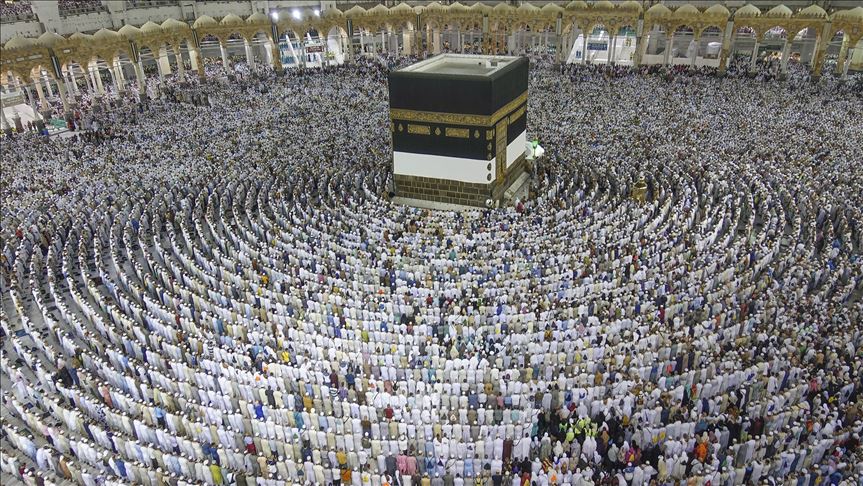Saudi officials are advising hopeful pilgrims who bought their Hajj deals and packages through various individual travel companies to request a refund for their deposits and payments
Western expats living in Qatar who often return to their home countries to join tour operators before traveling to Saudi Arabia for the annual Hajj pilgrimage must now follow new rules, as per a decision by authorities in the kingdom.
Just three weeks prior to this year’s Hajj, Saudi Arabia has declared that western Muslim pilgrims who want to take part in Hajj must apply through a government website, in a move that effectively eliminates the role of travel agents.
This year, hopeful pilgrims and tour operators in the west have been left in limbo due to a lack of clarity from Saudi authorities over the number of allotments for the trip.
However, this week, the kingdom’s Ministry of Hajj confirmed that worshippers from “Europe, America and Australia” must apply for their space via the government’s Motawif website.
Those selected would be chosen through a “automated lottery” mechanism, after which they would be able to schedule and pay for their transportation and accommodations directly with the Saudi government.
Riyadh’s move marks a significant shift in policy, effectively ending the decades-old practise of registering, booking, and paying for Hajj packages, accommodations, and permits through recognised travel firms.
Western pilgrims will be offered three different packages: Silver, Gold, and Platinum, according to the official Hajj website, Motawif.
Silver starts at $5,986 and provides “the basics for a comfortable, convenient Hajj,” while Gold costs $6,296 and Platinum costs $9,768.
The Hajj pilgrimage is one of the world’s largest religious gatherings and is regarded a religious requirement for any Muslim who is physically and financially able to make the trip.
The latest decision comes after the global Covid-19 pandemic struck global travel plans, including the pilgrimage, forcing the kingdom to briefly suspend Hajj.
Authorities later reduced the number of participants significantly.
The move also comes as the kingdom attempts to centralise all travel and tourist operations by pushing for the usage of its designated websites, internet domains, and digital systems.
Saudi officials are advising hopeful pilgrims who bought their Hajj deals and packages through various individual travel companies to request a refund for their deposits and payments, many of which had been in the works during the pandemic.
Prices for Hajj packages had also risen dramatically by at least hundreds of dollars prior to the kingdom’s decision.
Western muslims react
The Muslim community in the west who will be affected by the short-noticed decision took to social media to express their frustration, many of whom denouncing the move.
However, some users were also quick to point out that the lottery system is not new, and is definitely not unique to western countries.







